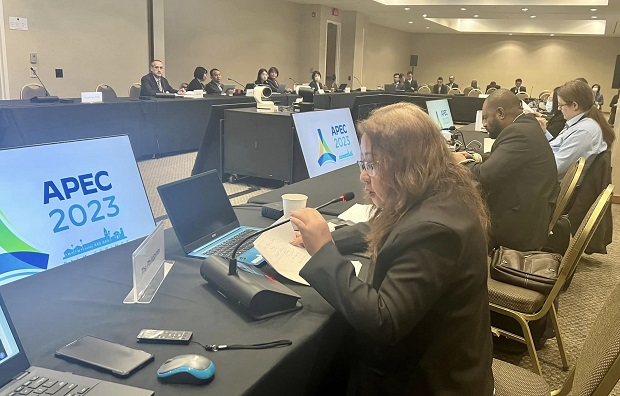Department of Information and Communications Technology (DICT) undersecretary Jocelle Batapa-Sigue recently presented the country’s latest policy and regulation updates at the APEC Telecommunications and Information Working Group’s (TELWG) Opening Plenary Meeting held last Feb. 18 at Palm Springs, California.

In her speech, Batapa-Sigue discussed new laws and several amendments to existing laws related to information and communications technology (ICT), which aim to boost economic development and growth in various industries.
She highlighted the passage of laws aimed at consumer protection in electronic transactions and strengthening security and enforcement, including the Subscriber Identity Module (SIM) Registration Act and the Anti-Online Sexual Abuse or Exploitation of Children and Anti-Child Sexual Abuse or Exploitation Materials Act.
Batapa-Sigue discussed the Corporate Recovery and Tax Incentives for Enterprises (CREATE) Act, which was signed into law in March 2021.
The law reduces the corporate income tax rates for domestic and resident foreign corporations from 30% to 25%.
The micro, small, and medium enterprises (MSMEs) are the main beneficiaries of this law, which also offers other types of tax relief. This is one of the economic recovery measures that the government has put in place to address the challenges faced by the business sector due to the ongoing Covid-19 pandemic.
The DICT official also discussed Republic Act No. 11647, which aims to make the Philippines more accessible to foreign investors.
The law allows qualified non-Philippine nationals to do business or invest in a domestic enterprise up to 100% of its capital, and it also allows foreign investors to set up 100% ownership of all small- and medium-sized enterprises.
The law also liberalizes the practice of professions not governed by existing special laws. This law will help boost the country’s startup ecosystem by allowing Filipino startups to leverage foreign investments.
She also shared how Republic Act No. 11659 or the amendments to the Public Service Act has clarified the distinction between public service and public utility.
This means that foreign nationals may now own up to 100% of equity in companies that provide public services, such as telecommunications and transport network vehicle services.
This has led to an increase in foreign investments, providing a boost to the country’s economy.
In addition to these policy and regulation updates, Congress recently passed Republic Act No. 11927, also known as the Philippine Digital Workforce Competitiveness Law.
This law aims to embed digital competence across all citizens, future-proofing the workforce and creating more digital jobs.
Lastly, the Innovative Startup Act, signed into law in 2019, aims to strengthen, promote, and develop an innovative and entrepreneurial ecosystem and culture in the Philippines.
The law focuses on providing benefits and removing constraints to encourage the establishment and operation of innovative new enterprises and businesses crucial to their growth and expansion.
She also shared circulars of issued by the DICT to support the country’s goal of advancing its digital economy and improving connectivity, citing that policies are cornerstones of a digital society.
She discussed DICT Circular No. 8, which fosters and encourages the growth and development of independent tower companies for the development of a robust ICT environment of shared passive telecommunications tower infrastructure.
Meanwhile, DICT No. 002 aims to expand the provision of internet services through inclusive access to satellite services.
Batapa-Sigue said “the DICT believes that their mission is not only to build strong digital infrastructure but to protect the rights of every citizen and empower them to leverage digital jobs and amplify their voices in the digital world”.
Overall, she said the country’s policy and regulation updates aim to promote economic development and growth in the country.
“With these amendments, the government hopes to attract more foreign investments, support the business sector during the pandemic, and encourage the establishment of innovative new enterprises and businesses,” she added.




